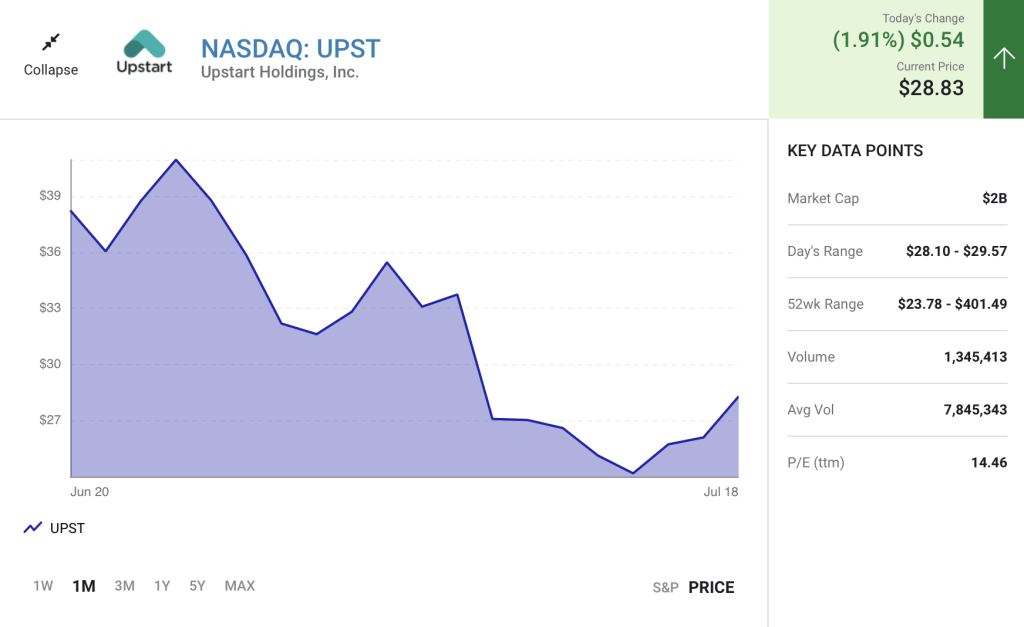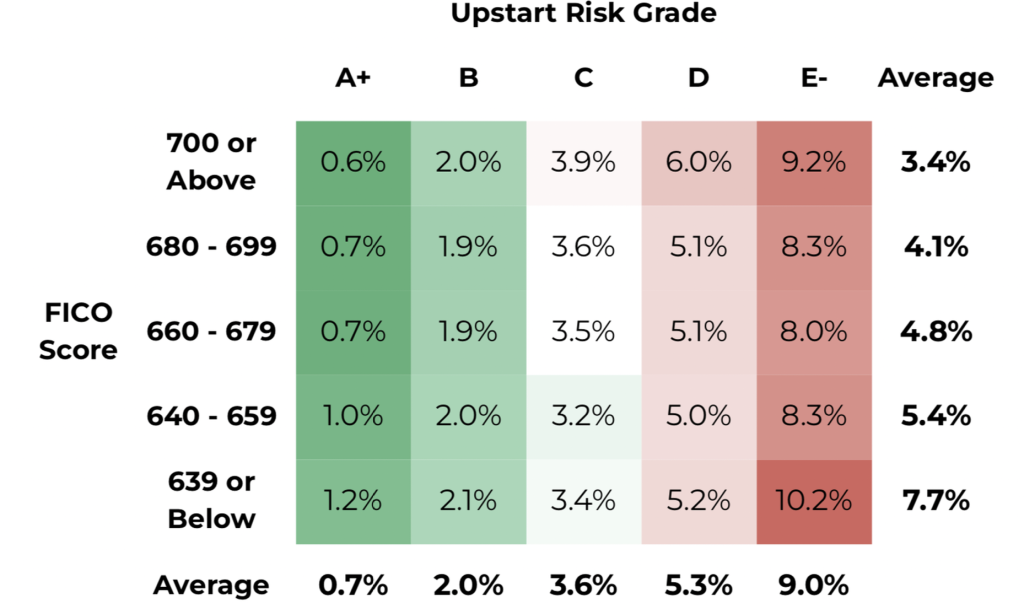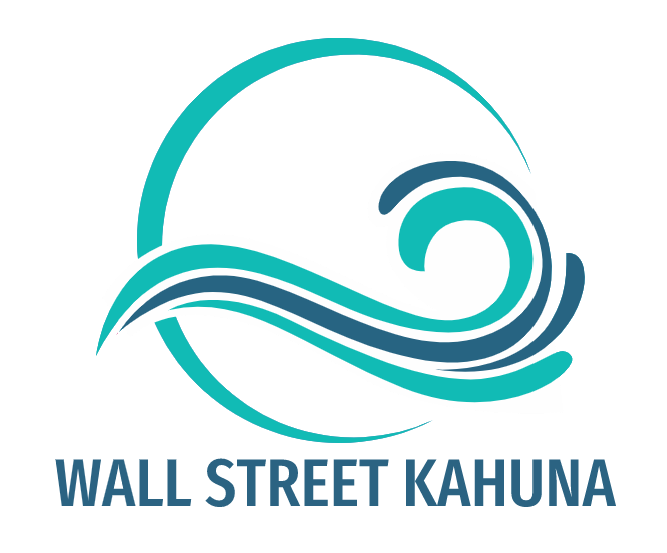This beaten-down fintech stock could rebound as macroeconomic headwinds dissipate.
The tech-heavy Nasdaq Composite has tumbled 29% from its high, sent into a downward spiral by the deteriorating macroeconomic environment. But many individual stocks have fallen much further. A combination of weak guidance, runaway inflation, and rising interest rates have left Upstart Holdings(UPST 1.91%) 93% off its high. But investors shouldn’t give up just yet.
Here’s what you need to keep in mind about this growth stock.

Upstart’s on a mission to improve the lending industry
Upstart is a fintech company that aims to disrupt the lending industry. Its artificial intelligence-powered platform captures far more data from prospective borrowers than traditional credit models, which theoretically allows the company to quantify risk more precisely. Lenders benefit from lower fraud and loss rates, which can translate into great approval rates and lower interest rates from consumers.
As a caveat, Upstart’s artificial intelligence models have not been tested through a significant down period in the credit cycle, and the company recently lowered its Q2 outlook, citing the tough macroeconomic climate. Rising interest rates will likely blunt demand for loans, and high inflation will likely put pressure on consumers, making defaults more likely. Those factors have contributed to the sharp drop in Upstart’s share price.
However, investors still have cause to be optimistic. The chart below, compiled from an Upstart study, shows annualized default rates for Fair Isaac‘s FICO-based underwriting compared to Upstart-powered loans. Across all thresholds, Upstart is able to quantify risk more accurately, teasing apart borrower cohorts that FICO scores would otherwise lump together. For example, borrowers with a FICO score of 639 or below (considered low) but an A-plus rating from Upstart defaulted 1.2% of the time, while borrowers with a (high) 700-plus FICO score but an Upstart grade of E-minus defaulted 9.2% of the time.

Not surprisingly, Upstart’s perceived ability to quantify risk more precisely has translated into rapid growth. As of the first quarter, the company had 57 bank partners on its platform, up more than threefold from the prior year. In turn, revenue soared 156% to $310 million in the first quarter, and net income climbed 224% to $33 million.
On a less optimistic note, Upstart generated negative free cash flow during the quarter, due in large part to the purchase of loans as part of some R&D it was conducting on its new auto loan program. For context, when bank partners are unable or unwilling to hold loans on their own balance sheets, Upstart can choose to fund those loans with its own cash, and that’s exactly what Upstart decided to do during the quarter — the company held nearly $600 million in loans at the end of Q1, more than double the $250 million it held in Q4. That spooked investors, as it exposes Upstart to significant credit risk.
Fortunately, CFO Sanjay Datta said the company will discontinue that practice, and Upstart has already taken steps to convert the loans on its balance sheet into cash. Unfortunately, Upstart cited that conversion process as one of the reasons for lower Q2 guidance, meaning it probably sold the loans at a loss. All things considered, investors should be pleased by the long-term implications of the decision, as it substantially reduces Upstart’s exposure to credit risk.
Where investors should focus
Looking ahead, investors should monitor the performance of Upstart-powered loans as the current macroeconomic environment continues to put pressure on consumers. Growth in revenue and earnings is great, but Upstart’s value will ultimately be measured by its ability to score risk more accurately than traditional credit models. If the company can do that, revenue and earnings growth will fall into place eventually.
Here’s the bottom line: Upstart appears to have an edge over FICO-based underwriting, and the company is growing quickly. Better yet, management puts its total addressable market (TAM) at over $860 billion, a figure that comprises personal and auto loans. Upstart also plans to enter additional verticals in the future, including the $640 billion market for small business loans.
With shares trading at a reasonable 2.6 times sales, I think risk-tolerant investors should consider buying a small position in this monster growth stock right now.





